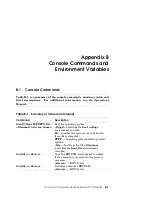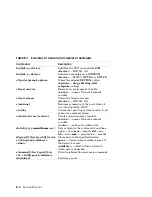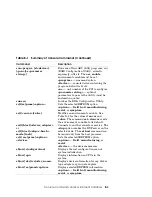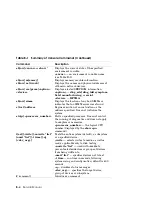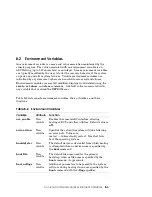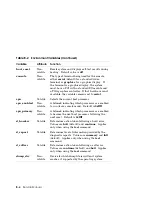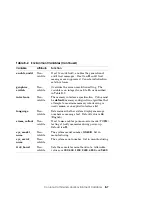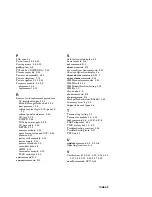
Console Commands and Environment Variables
B-
5
B.2
Environment Variables
An environment variable is a name and value association maintained by the
console program. The value associated with an environment variable is an
ASCII string (up to 127 characters) or an integer. Some environment variables
are typically modified by the user to tailor the recovery behavior of the system
on power-up and after system failures. Volatile environment variables are
initialized by a system reset; others are nonvolatile across system failures.
Environment variables are created, modified, displayed, and deleted using the
create
,
set
,
show
, and
clear
commands. A default value is associated with
any variable that is stored the EEPROM area.
Table B-2 lists console environment variables, their attributes, and their
functions.
Table B–2 Environment Variables
Variable
Attribute
Function
arc_enable
Non-
volatile
Enables the console ARC interface, allowing
booting of ECU and other utilities. Default value is
off
.
auto_action
Non-
volatile
Specifies the action the system will take following
an error halt. Values are:
restart — Automatically restart. If restart fails,
boot the operating system.
bootdef_dev
Non-
volatile
The default device or device list from which booting
is attempted when no device name is specified by
the
boot
command.
boot_file
Non-
volatile
The default file name used for the primary
bootstrap when no file name is specified by the
boot
command, if appropriate.
boot_osflags
Non-
volatile
Additional parameters to be passed to the system
software during booting if none are specified by the
boot
command with the
–flags
qualifier.











